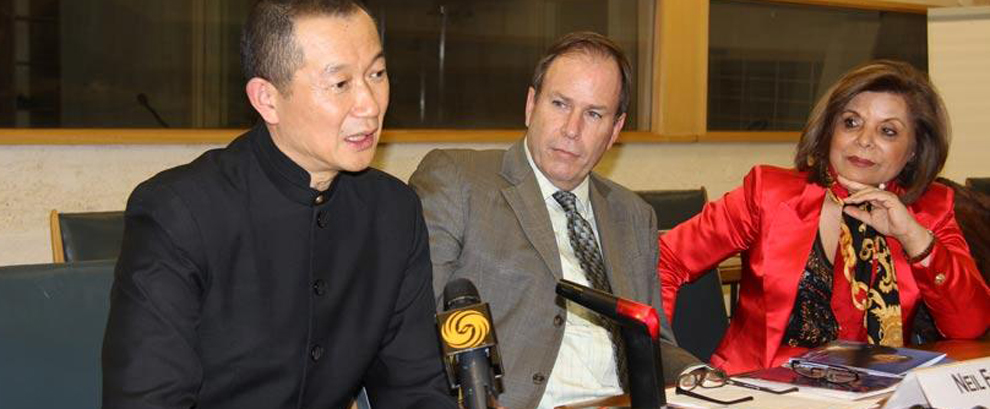Re: “A Pipeline to Peace” by, George Perkovich and Revati Prasad
April 18, 2005
The article argues in favor of the projected oil pipeline between Iran, Pakistan and India. It suggests that its value is in contributing to a safer environment, giving hope for overcoming decades of mistrust between the two rivals, India and Pakistan, and creating a deterrent in the further development of WMD by Iran. The authors nevertheless express disappointment with the Bush Administration for not recognizing the pipeline’s obvious attractiveness and for the Administration’s “obsession with Iran”. The threat to block this initiative was articulated by Secretary of State Condoleezza Rice during her recent trip to India on 16 March 2005: “We have communicated
to the Indian government our concerns about the gas pipeline cooperation between Iran and India,”
The Bush Administration has, in fact, proved unwilling to back any project that offers an economic benefit to Iran. Many reasons have been offered in explaining the underlying reasons for the US reluctance, Among them, fear of terrorism, the development of nuclear weaponaries, fundamentalism and a growing threat to neighbors have been advanced and gained some credibility. What most analysts stay away from, however, is a more direct reference to an obvious reluctance by Washington to a scenario where Iran could play a critical role in the world’s future energy equation. This scenario could easily take shape by looking closely at the latest estimate of Iranian gas and oil reserves. At present, Iran’s gas reserves represent the equivalent of about 155 billion barrels of oil, i.e. slightly lower than Saudi Arabia. While Iran’s production today could be considered as marginal, its vast reserves and its plan to reach a peak production by 2010 could explain Washington’s fears. Strategists see Iran as the future tsar of energy in the Middle East with the power of dictating its own rules to the growing global demand for oil and natural gas and to those who require energy for their development. If Iran plays such a central role in the
world’s future energy supply, could Washington fear losing its grip on the energy markets?
So, the decision to subdue Iran may represent a preventive measure.
As the United States gears up for an attack on Iran, one thing is certain: the Bush administration will never mention oil as a reason for going to war or inducing “regime change”. In such attempt, WMD – among many other reasons – may nevertheless be invoked as a strong argument for Washington to justify its plan to eliminate rivalries and to replace the present leadership with one far friendlier to U.S. strategic
interests.
Mehri Madarshahi-d’Orville
27 Ave. Foch, Paris 75016
e-mail:madarshahi2002@yahoo.com
www.madarshahi.org









